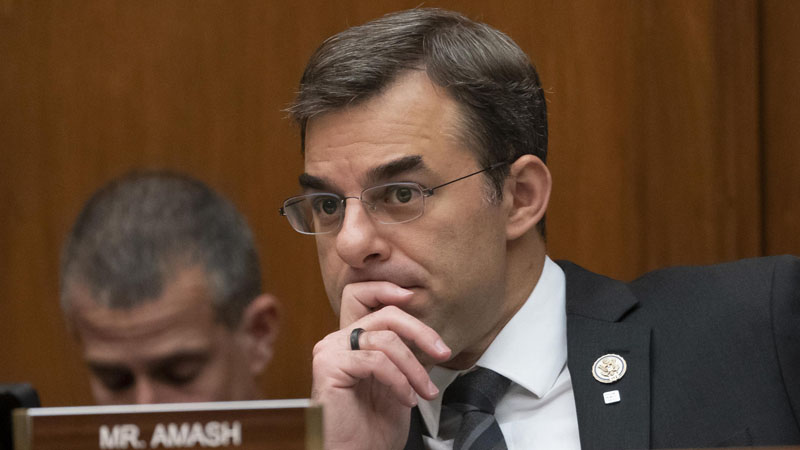Justin Amash Slams FBI Nominee Kash Patel Over FISA 702 Warrant Stance

Rep. Justin Amash, who became the lone Republican to call for President Trump’s impeachment in May, confirmed over the weekend that he will no longer caucus with the House GOP. | J. Scott Applewhite, File/AP Photo
Former Rep. Justin Amash (R-MI) delivered a sharp rebuke of President Donald Trump’s FBI director nominee, Kash Patel, following Patel’s Senate confirmation hearing Thursday, calling his views on warrantless surveillance “disqualifying.”
At the heart of Amash’s criticism is Patel’s opposition to requiring a warrant for surveillance under Section 702 of the Foreign Intelligence Surveillance Act (FISA), a controversial program used to monitor foreign threats. Patel defended his position before the Senate Judiciary Committee, arguing that such a requirement “is just not comported with the requirement to protect American citizenry.”
Amash, a longtime critic of government overreach, did not hold back in his response. “Kash Patel’s position that a warrant should not be required to search the communications of Americans under FISA 702 is disqualifying,” Amash posted online. “The Constitution of the United States is the law. It requires a warrant. Anyone who willfully ignores the Constitution should not head the FBI.”
Section 702, which does not currently require a warrant, is designed to monitor foreign adversaries posing national security threats. However, in practice, the program can sweep up the data of American citizens if they communicate with a foreign individual under surveillance. Critics argue that this creates a loophole allowing warrantless searches of Americans’ private communications.
Patel’s stance in favor of keeping Section 702 unchanged aligns with some intelligence officials but raises alarms among civil liberties advocates. Amash’s opposition to broad government surveillance dates back to his time in Congress.

Once a Republican, he left the party in 2019 over Trump’s “authoritarian impulses,” later joining the Libertarian Party, making history as the first Libertarian member of Congress. He retired in 2021 before rejoining the GOP in 2024 to make an unsuccessful Senate bid.
Ironically, Section 702 has become a flashpoint for another of Trump’s key national security nominees—former Rep. Tulsi Gabbard (D-HI). Nominated for Director of National Intelligence, Gabbard has long opposed the surveillance program and previously advocated for its elimination. However, during her confirmation hearings, she faced pressure from Republican senators and assured them that she had “reversed her position” on the matter.
With Patel doubling down on warrantless surveillance and Gabbard shifting to support the program, Trump’s intelligence nominees are raising fresh concerns among civil libertarians and constitutional conservatives alike. As Patel’s confirmation process moves forward, the debate over government surveillance, civil liberties, and constitutional rights is likely to remain at the center of the battle over his nomination.


